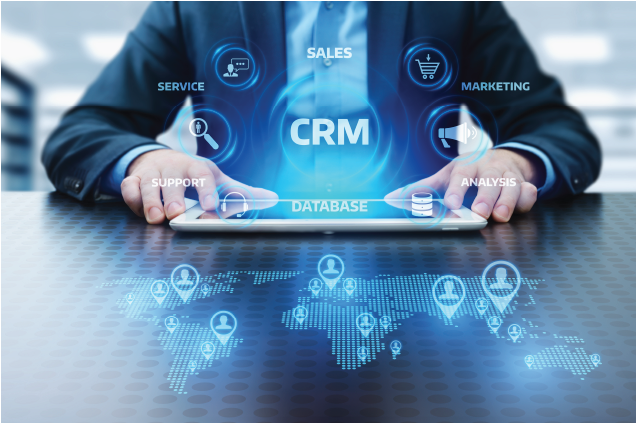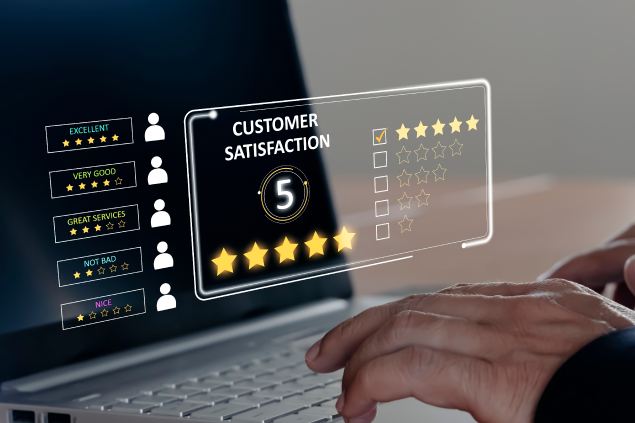Client relationship management (CRM) software gets loads of attention for improving client intake—and for good reason! But did you know your CRM is just as effective at promoting client retention at your law firm?
Building long-term attorney-client relationships
It’s called “client relationship management software”—not “client intake software.” Your relationships with clients don’t end at intake, and neither should your CRM’s role in helping you manage those relationships.
When used effectively, CRM software supports a positive rapport with existing (and previous) clients and nurtures them toward choosing your firm again in the future.
Why you should keep your clients
A steady stream of new clients signals growth. That’s clear. What may not be so obvious, though, are the benefits of building client relationships that last.
Cost of client retention vs client acquisition
Securing a new client is five times more expensive than working with a previous one. In other words, increasing client retention may help your firm maintain a full caseload while lowering marketing expenses. Still, many firms opt to focus on client acquisition rather than guiding existing clients toward purchasing additional legal services.
Client retention saves more than money
Money isn’t the only thing you save when you keep your clients. Working with loyal clients a second or third time preserves two crucial resources: time and energy. Lawyers have more of both to dedicate toward legal work when they spend less time convincing new prospects to try their firm.
Repeat clients offer a high ROI
Returning customers spend an average of 67% more than new customers. This makes higher client retention an incredible return on investment (ROI).
Why would returning clients spend more? Simple. Clients whom you’ve already served—and served well—already recognize the value you offer. They’ve established trust with their attorney and expect excellent results and responsiveness from your firm. Therefore, they are more likely to make a large investment in your firm’s services.
Loyal clients are a marketing powerhouse
People refer their friends and family members to businesses that they know and believe in. This is particularly true when it comes to law firms, since the outcome of a legal matter may have a lasting impact on a loved one’s well-being.
The more times you meet a client’s needs, the more rapport you build. And with greater trust comes a greater likelihood that the client will spread the word of their positive experience to others.
Loyal clients may also be more receptive to leaving reviews for your firm on Google or online platforms like Avvo. This is a significant win, considering a growing majority of people rely on online reviews when searching for local businesses.
How to use your CRM to boost client retention
Many of the same features that make legal CRMs useful for client intake can be repurposed to provide a stand-out experience for existing clients.
Better communication, higher client satisfaction
Communication is consistently ranked as a top factor for client satisfaction.
Your clients are accustomed to accessing their bank account balances, medical test results, and other personal information instantly on their mobile devices. It’s only logical that they would expect information about their case to be available at their fingertips, too—and your legal CRM makes that possible.
Keep your clients up-to-date on their terms with built-in workflows that remind attorneys to provide updates as legal matters progress to certain milestones. For example, use your CRM to send an automated, personalized text message when a client’s divorce complaint is sent to the county courthouse to be filed.
These client-specific messages could be combined with an educational drip campaign related to the relevant practice area. For instance, you may send links to blogs detailing what to expect at each stage of the divorce process. You could also include helpful emails about your law firm’s payment policies or business hours so they always know what to expect when working with you.
Faster follow-ups
Unreturned phone calls are frustrating at best. At worst, they can cost you clients. Leverage your CRM to send automated follow-ups whenever you miss an email, text message, or phone call. A simple “I’m in a meeting right now, but I’ll return your call by 2:00 tomorrow” is sufficient.
Modern conveniences
Most legal CRMs offer a wealth of integrations to expedite the legal process and help you provide higher-quality service to your clients.
Take secure file-sharing and eSignature features for example. Personal injury attorneys can request photographs of the scene of an accident or a copy of a medical bill via text message. Business clients may appreciate the option to sign a contract via their smartphone or tablet—as opposed to taking time out of their day to drive across town to your office.
Depending on your clients’ preferences, use automated emails, voice calls, or text messages to send meeting reminders from within your legal CRM. Consider including a link where clients can request to reschedule if something unexpected pops up.
More personalized service
Personalized service is more than just tagging your client’s name at the beginning of an email. Your clients don’t want to feel as if they’re explaining their situation from scratch every time they call your firm. At-a-glance notes from previous conversations prepare any authorized member of your legal team to pick up the conversation where it last left off.
Valuable marketing campaigns
Sending current clients irrelevant emails is a surefire way to make them feel unseen and unvalued. Yet, what one client considers “junk” may be helpful to another.
Data tracked within your CRM helps you segment clients into groups based on age, location, or other factors, so you can send meaningful, timely content that adds value to each client’s experience with your firm.
Better data about how clients engage with your firm
Most legal CRM software includes analytics for actionable insights about your clients—and the marketing campaigns you target toward them. Perhaps you can predict that your older clients prefer email over text messaging, or that a majority of family law clients tend to call your firm with questions at a particular stage in their cases.
Knowing this information can help you manage future cases more proactively, leading to an even better client experience.
Build better lead funnels
It takes effort to establish relationships with new clients, so maximize the ones you already have. Take advantage of your CRM to keep clients engaged with your firm once their legal matters begin (and even after they’ve ended). Encourage current and former clients to choose your firm for future legal needs with drip campaigns, client appreciation emails, and information about related legal services.
Consider the ways your lead funnels for different practice areas could connect. For example, you might target marketing materials for estate plan updates toward clients nearing the end of your divorce lead funnel.
Build client relationships that stand the test of time with TimeSolv and Law Ruler
Relationships are the lifeblood of your law firm. And the right software makes all the difference when it comes to maintaining them. That’s why TimeSolv and Law Ruler work together to help you take better care of your clients throughout the course of their matters.
Start boosting client retention—and your bottom line—today. Start your free trial today.

















